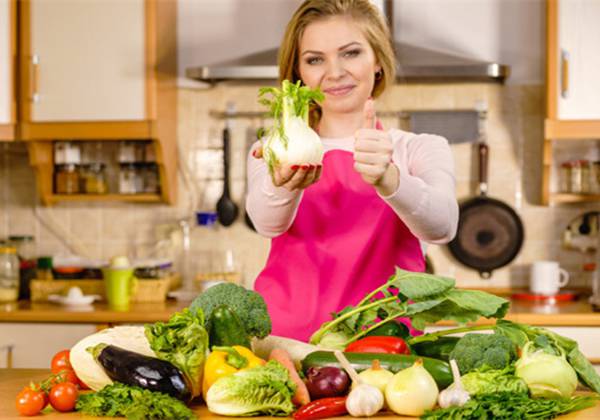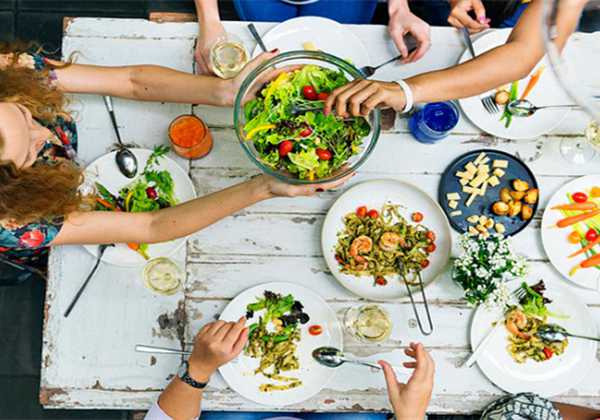代孕母亲在怀孕期间的饮食指南

怀孕是一个非常特殊的时期,对代孕母亲而言,健康至关重要。合理的饮食不仅有助于维持母亲的身体状态,还能为胎儿的发育提供必要营养。然而,某些食物可能带来风险,例如生鱼片、未煮熟的蛋类和高汞海鲜,可能含有细菌或毒素,影响胎儿健康。此外,酒精和含咖啡因饮品也应避免,因其可能引发妊娠并发症。选择安全食物如巴氏消毒奶制品和熟透的肉类,是保障健康的实用方法。了解这些注意事项,有助于更好地保护母婴健康。
为什么饮食对代孕母亲很重要
代孕母亲为他人孕育孩子,她的饮食非常重要,因为它不仅直接影响婴儿的成长,还可能对母婴健康产生深远影响。错误的食物可能会对婴儿和代孕母亲造成问题,例如高汞鱼类可能损害胎儿神经系统发育,而未煮熟的肉类或蛋类可能携带细菌,增加感染风险。此外,代孕母亲的体重管理也至关重要,过高的BMI可能引发妊娠糖尿病等并发症,威胁母婴健康。
健康的饮食有助于:
- 促进婴儿健康成长。优质的蛋白质、健康脂肪(如Omega-3)和膳食纤维是胎儿发育的关键,能支持肌肉、器官、大脑及视力的全面成长。
- 预防代孕母亲生病。合理摄入营养可增强免疫力,避免因营养不足或过剩导致的疾病,如贫血或妊娠高血压。
- 确保妊娠顺利进行。均衡饮食结合定期产检,能有效降低早产或其他妊娠并发症的风险,为胎儿提供稳定的宫内环境。
代孕母亲不应该吃哪些食物
代孕母亲在怀孕期间应避免的关键食物:
- 酒精为什么酒精是危险的:酒精会伤害婴儿的大脑和身体,因为它通过胎盘直接影响胎儿发育,可能导致胎儿酒精综合征(FAS),引发智力低下、行为异常等问题。即使是少量饮酒也可能对胎儿造成不可逆的损害,因此建议完全戒酒。
该怎么做:怀孕期间不要喝任何酒精。严格避免任何形式的含酒精饮品,包括啤酒、葡萄酒和烈酒。

- 生的或未煮熟的肉类为什么生肉是危险的:生肉可能含有沙门氏菌和弓形虫等病原体,这些细菌可通过胎盘感染胎儿,导致流产、早产或胎儿发育问题。
不安全食品的例子:罕见牛排、未煮熟的汉堡、生禽肉。
该怎么做:始终将肉类完全煮熟至内部温度达到安全标准(如牛肉至少71°C,禽肉至少74°C)。使用食物温度计确保安全性。
- 生鱼和海鲜为什么生鱼是危险的:生鱼可能携带寄生虫和细菌,同时某些鱼类含有高浓度汞,会影响胎儿神经系统的正常发育。
不安全食品的例子:寿司、刺身、腌鱼。
该怎么做:避免所有生鱼,选择低汞含量且充分煮熟的海鲜,如鲑鱼或虾。
- 高汞鱼类为什么高汞鱼类是危险的:汞是一种重金属,能够积累在胎儿大脑中,阻碍神经系统发育。
不安全鱼类的例子:鲨鱼、剑鱼、方头鱼。
该怎么做:优先选择低汞鱼类,并控制每周摄入量为2-3份。

- 熟食肉和热狗为什么熟食肉是危险的:熟食肉可能被李斯特菌污染,这种细菌可穿透胎盘屏障,增加流产或死产风险。
不安全食品的例子:火腿、萨拉米香肠、预包装冷切肉。
该怎么做:在食用前将熟食肉加热至冒热气以杀灭潜在细菌。
- 未巴氏杀菌的乳制品为什么未巴氏杀菌的乳制品是危险的:未巴氏杀菌的牛奶和奶酪可能含有李斯特菌或其他致病菌,对母婴健康构成威胁。
不安全食品的例子:生牛奶、软奶酪(如布里奶酪和卡芒贝尔奶酪)。
该怎么做:只食用经过巴氏杀菌处理的乳制品,检查产品标签确认是否符合安全标准。
- 生鸡蛋或半熟鸡蛋为什么生鸡蛋是危险的:生鸡蛋可能携带沙门氏菌,引发食物中毒,危及妊娠稳定。
不安全食品的例子:自制蛋黄酱、凯撒沙拉酱、生饼干面团。
该怎么做:仅食用完全煮熟的鸡蛋,避免含生鸡蛋成分的食物。

- 过量的咖啡因为什么过量的咖啡因是危险的:每天摄入超过200毫克咖啡因可能增加流产或胎儿体重过低的风险。
含咖啡因的食品例子:咖啡、茶、功能饮料。
该怎么做:限制每日咖啡因摄入量不超过200毫克,约等于一杯普通咖啡。
- 草药茶和补充剂为什么草药茶是危险的:某些草药具有子宫刺激作用,可能导致流产或早产。
不安全茶的例子:洋甘菊茶、甘草根茶。
该怎么做:在饮用草药茶或服用补充剂之前,请务必咨询医生。
- 未清洗的水果和蔬菜为什么未清洗的农产品是危险的:未清洗的蔬果表面可能残留农药、泥土或有害细菌,如大肠杆菌。
不安全食品的例子:预切水果、包装沙拉。
该怎么做:彻底清洗所有蔬果,尽量避免食用未经清洗的预切产品。

- 生豆芽为什么生豆芽是危险的:生豆芽容易滋生沙门氏菌和大肠杆菌,对孕妇和胎儿构成严重威胁。
不安全食品的例子:苜蓿芽、豆芽。
该怎么做:在食用前将豆芽彻底煮熟以消除潜在病原体。
实用表格:怀孕期间应避免的食物
| 食物 | 风险 | 建议 |
|---|---|---|
| 酒精 | 伤害婴儿大脑 | 不饮酒 |
| 生肉 | 沙门氏菌,弓形虫 | 完全煮熟的肉 |
| 生鱼 | 汞,细菌 | 煮熟的鱼 |
| 熟食肉 | 李斯特菌 | 加热的熟食肉 |
| 未巴氏杀菌乳制品 | 李斯特菌 | 巴氏杀菌乳制品 |
| 生鸡蛋 | 沙门氏菌 | 完全煮熟的鸡蛋 |
| 高咖啡因饮品 | 婴儿体重过低 | 限制咖啡因 |
| 草药茶 | 有害影响 | 医生批准的茶 |
| 未清洗农产品 | 农药,泥土 | 清洗干净的蔬果 |
| 生豆芽 | 细菌 | 煮熟的豆芽 |
代孕母亲的一般饮食指南与实用技巧
健康饮食对代孕母亲非常重要,因为这不仅关系到自身健康,还直接影响胎儿的发育和成长。以下是一些建议:
- 吃均衡的饮食,多吃水果、蔬菜和蛋白质。代孕母亲应确保摄入多种营养素,包括优质蛋白质(如鸡肉、鱼类、豆类)、富含维生素和矿物质的五彩蔬菜(如菠菜、胡萝卜)以及富含纤维和抗氧化剂的水果(如蓝莓、橙子)。这些食物不仅能支持胎儿的器官发育,还能帮助维持代孕母亲的能量水平和免疫系统。
- 多喝水以保持水分。充足的水分摄入对于血液循环、羊水生成以及预防便秘和尿路感染至关重要。建议每天饮用至少8-10杯水,并根据活动量和气候条件适当调整。
- 按照医生建议服用孕期维生素。孕期维生素(如叶酸、铁、钙和DHA)可以弥补日常饮食中可能缺乏的营养,尤其是叶酸,有助于预防胎儿神经管缺陷。
保持食物安全的实用技巧:
- 将剩菜存放在冰箱中。重新加热直到变热。剩菜如果未及时冷藏,容易滋生细菌,如李斯特菌或沙门氏菌,这些病原体可能通过胎盘影响胎儿。因此,剩菜应在2小时内放入冰箱,并在食用前彻底加热至冒热气。
- 在烹饪或进食前洗手。手部卫生是防止细菌传播的重要措施。代孕母亲在处理食材或用餐前,应使用肥皂和清水仔细清洗双手至少20秒,以减少感染风险。
- 经常清洁厨房表面和用具。厨房台面、砧板和刀具等工具容易残留生肉、海鲜或蛋类中的有害微生物。定期用热水和消毒剂清洁这些物品,可以有效避免交叉污染,保护母婴健康。
通过遵循以上饮食指南和安全技巧,代孕母亲能够更好地保障自己和胎儿的健康,为顺利妊娠打下坚实基础。
关于怀孕期间应避免的食物的常见问题
问1:如果寿司是用煮熟的鱼做的,我可以吃吗?
是的,您可以吃用煮熟的鱼做的寿司。只需确保鱼完全煮熟、新鲜,并在卫生条件下制作,以避免细菌或寄生虫感染。
问2:怀孕期间喝咖啡安全吗?
是的,但只能少量。每天咖啡因摄入量应限制在200毫克以内(约一杯咖啡),过量可能增加流产或胎儿发育问题的风险。
问3:怀孕期间所有的奶酪都不安全吗?
不,只有未巴氏杀菌或软奶酪(如布里奶酪)不安全,因其可能含李斯特菌。硬奶酪如切达奶酪经过加工处理,风险较低,可安全食用。
结论
吃正确的食物对代孕母亲非常重要,因为饮食直接影响胎儿的发育与母体健康。避免危险的食物(如生鱼、未巴氏杀菌乳制品和高汞鱼类等)可以显著降低感染风险及胎儿发育异常的可能性。此外,合理控制咖啡因摄入和保持均衡饮食也是关键措施。如果您不确定该吃什么,请务必咨询医生或营养师,以获得专业指导。
保持安全,保重!